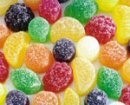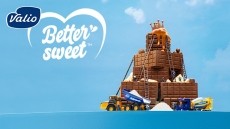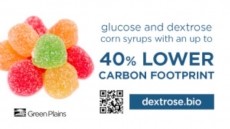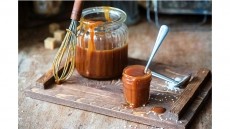Colourings to come with a warning
see products containing any of six artificial colours labelled with
a health warning for children.
Foods containing tartrazine (E102), quinoline yellow (E104), sunset yellow (E110), carmoisine (E122), ponceau 4R (E124) and allura red (E129), will have to be labelled "may have an adverse effect on activity and attention in children".
Manufacturers have eighteen months to comply with the new labelling requirements following the official publication of the law, which is expected within the next few weeks.
Companies will have to decide whether to continue to use the additives and suffer the effects the warning might have on sales, or invest in reformulation.
Many large companies, such as Cadbury and Nestle, have already made pledges to remove all artificial colourings from their products.
The decision to put a warning on products containing colours came yesterday at the plenary session of the European Parliament in Strasbourg.
MEPs also updated and simplified EU rules for authorising food additives, flavourings and enzymes by adopting a legislative package on four draft regulations, which are part of the Commission's Food Improvement Agents Package (FIAP).
Other areas voted on by the Parliament included the decision that food additives must only be used if they are safe and bring benefits to consumers, flavourings must be 95 per cent natural in origin to be labelled "natural", and separate limit values for nanotechnologies must be decided on.
The new authorisation procedure will run in parallel with a reassessment of all additives, flavourings and enzymes that are currently on the market.
Updating EU rules MEPs adopted a new 'common authorisation procedure' for approvals, to contribute to the free movement of food within the European community and to the protection of human health and consumer interests.
The new procedure intends that community authorisation will be given in a transparent, centralised manner on the basis of a scientific opinion by the European Food Safety Authority (EFSA), as long as the authorisation criteria set out in the sectoral food laws are met.
EFSA will have nine months to give its opinion, not six as the Council wanted.
The Commission will have a further nine months to submit a draft regulation.
There are currently about 2,600 registered artificial and natural flavourings used by European food manufacturers.
MEPs decided that they can be deemed natural if 95 per cent natural in origin, although the Commission had proposed setting a level of 90 per cent.
The European Parliament also voted that additives must only be used if safe and there is a technological need for their use, and enzymes will only be authorised if they do not mislead the consumer in regards to freshness, nature and quality of ingredients.
Additionally, the MEPs have called for separate limit values should an additive be changed through nanotechnology.
Artificial colours Anna Glayzer, from campaign group, the Food Commission, which has set up the Action on Additives initiative, said: "This is in one sense a gain for the consumer, in that it should deter manufacturers from using these ingredients.
"Our concern is that this will be just one more thing parents are expected to look out for.
If we have enough evidence to issue a warning, why not take the burden off the parent and simply ban these colours?
They serve no useful purpose in our food."
The possible risk to children was detected in last year's Southampton Study, published in The Lancet, which caused a stir by linking artificial colourings to hyperactivity in children.
Earlier this year, the UK Food Standards Agency (FSA) concluded that Southampton colours should be phased out in Europe.
While the conclusions did not result in an immediate ban, the FSA recommended the UK push for voluntary removal of the additives through extensive reformulation while advising the European regulators to implement a ban.
Following its review the European Food Safety Authority, the food risk assessor for the European Commission, has deemed the Southampton study as insufficient evidence on the safety of the colourings, but is currently carrying out a full reassessment of all additives.
As yet, therefore, there has still not been a ban implemented in Europe.


















